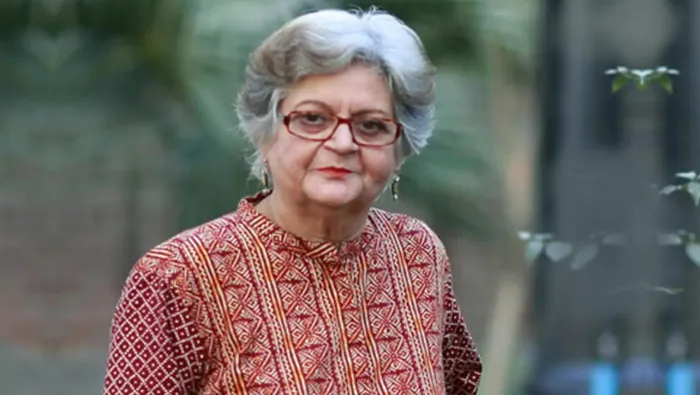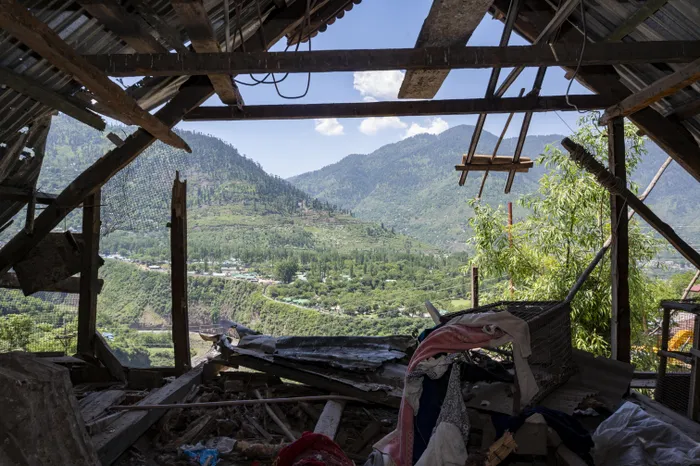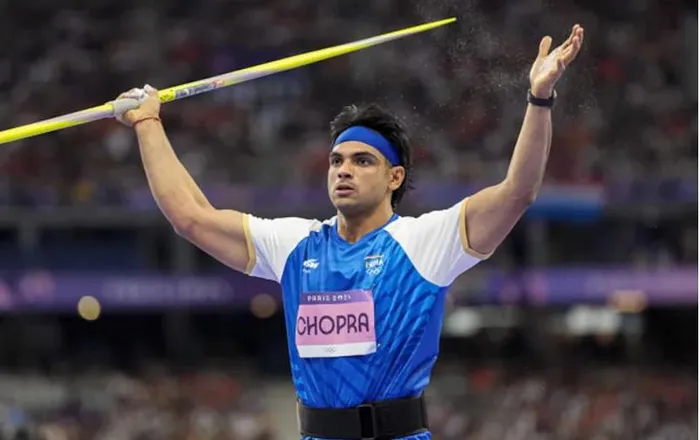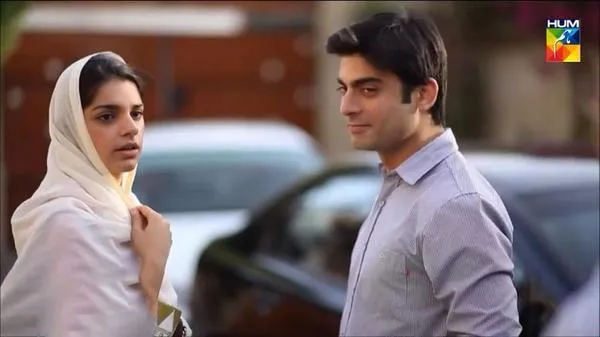
Artist and activist Salima Hashmi believes “If you put people together, they always find reason to enjoy the same music, the same food, the same films - [they] dance together, read together.”
Image: File
Karishma Mehrotra
Even during the darkest moments of India and Pakistan’s volatile history - through wars, terrorist attacks and diplomatic breakdowns - artists and activists tried to keep the countries connected.
Mumbai’s plays found an audience in Karachi. Lahore’s painters held shows in New Delhi. Activists walked across the disputed border, past soldiers marching in elaborate drills, hoping to bridge one of the world’s most intractable divides.
“When you travel, and meet the other side, it gives them a human face,” said Suhasini Mulay, an Indian actor and co-founder of the Pakistan-India Peoples’ Forum for Peace and Democracy (PIPFPD).
“All that demonization that you’ve been fed - it just begins to melt away.”
But after years of declining relations, punctuated by the latest eruption of violence between the nuclear-armed neighbors, even the smallest cultural exchanges have all but vanished. In more than a dozen interviews, Indian and Pakistani artists, musicians, diplomats and academics reflected on how the countries became so cut off from one another - and how much has been lost.

A house in Indian-run Kashmir was left in ruins by cross-border shelling during the recent tensions between India and Pakistan.
Image: Saumya Khandelwal for The Washington Post
Trade between India and Pakistan had already shriveled to almost nothing in recent years. Postal routes were suspended in 2019. The final tightening came last month, after gunmen killed 26 tourists in a meadow near Pahalgam, in Indian-administered Kashmir. Cultural ties, already threadbare, frayed further.
“Even a simple thing like sending a book to a friend across the border is impossible,” said Ritu Menon, an Indian publisher who has helped Pakistani writers come to India.
Salima Hashmi was 4 when her father - the celebrated Pakistani poet Faiz Ahmed Faiz - moved the family from New Delhi to Lahore in anticipation of the bloody partition of British India in 1947.
“A guy who had never been here drew an unthinking carving line over a gin and tonic,” she said, referring to Cyril Radcliffe, the British judge who divided the subcontinent. “His hand, I’m sure, wavered a bit.”
She grew up watching India and Pakistan try to make sense of their sudden separation. The first field hockey match between the newly created countries in 1948 was, for her, a moment of “realization that something had happened that alienated us from our own humanism.”
It inspired her to organize the Faiz Festival - an annual cultural festival in Lahore, named for her late father - which became one of the most consistent venues of cultural exchange. Starting in the 1980s, she hosted Indian icons almost every year, including filmmaker Shyam Benegal, poet Kaifi Azmi, and screenwriter-actor couple Javed Akhtar and Shabana Azmi.
“If you put people together, they always find reason to enjoy the same music, the same food, the same films - [they] dance together, read together.”

Indian Olympic medalist Neeraj Chopra, has praised Pakistani javelin thrower Arshad Nadeem, and invited him to India, After the Kashmiri attack this had proved impossible.
Image: Supplied
She also made a point to travel frequently to India - for lectures and festivals, and as part of a Pakistani peace delegation after the 2008 terrorist attacks in Mumbai. Since 2016, though, her cross-border trips have ceased.
Four years ago, when she inquired about visiting India for a wedding, and to see a dying friend, she was swiftly told that a visa was out of the question. Works of art she had once shipped to India for exhibitions were slapped with 200 percent duties in 2019, then banned altogether.
“Art is not lethal,” she said, laughing. “But it had clearly become a freeze.”
The freeze has only intensified in the intervening years. Goods that once flowed via third countries have faced heightened scrutiny.
After the Pahalgam attack, a painting by a Pakistani artist was confiscated by Indian customs officials. A movie with Pakistani actor Fawad Khan was denied theatrical release. Social media accounts of Pakistani actors were blocked in India.
In April, India’s government sent out an advisory telling streaming platforms in the country to “discontinue” carrying Pakistani content - even soap operas, which have long been popular across the border. Mulay remembers a Pakistani diplomat telling her once that the serials had done more for the India-Pakistan relationship than any diplomatic mission ever could.

Even Pakistan's soap Operas, like the hit Zindagi Gulzar Hai, are being targeted in India. with one creative describing them as more successful than the work of teams of diplomats.
Image: Supplied
Sports had been one of the most enduring links between the countries, but, outside of multinational tournaments, India and Pakistan have not played a cricket match against each other since 2013.
In April, Indian Olympic medalist Neeraj Chopra, who has praised Pakistani javelin thrower Arshad Nadeem, invited him to India, only to be met with severe blowback online. After Pahalgam, Chopra said, a visit by Nadeem was now “out of the question.”
Bani Singh, an Indian filmmaker, grew up hearing about her father’s former hockey teammate from Lahore who switched teams after partition. A friend, her father told her, suddenly became a foreigner.
When she traveled to Pakistan six decades later to find him, she found warmth and hospitality - but also loud silences. “We never discussed terrorism or the political situation,” she said.
“When you are in a state of trauma, you cannot have a conversation about peace,” she continued. “You have to first feel secure.”
Every time there has been a flicker of “possibility” between the countries, she said, it has been derailed by violence, and the cycle of mistrust is renewed.
“Then there’s no point even going there, because you almost feel that it would be disrespectful of the people who’ve lost their lives and the families that are suffering,” Singh said.
Lalita Ramdas remembers a different time. Her late husband, Adm. L. Ramdas, rose to become the head of India’s navy, decorated for his service in the 1971 war against Pakistan.
When their daughter told them that her Pakistani boyfriend had proposed, the admiral requested - and received - permission from India’s defense minister and prime minister for the couple to wed.
“There didn’t used to be this kind of hostility and suspicion with the layers of evil or anger that we have seen over the last 10 to 15 years,” Ramdas said.
After retiring, the admiral joined PIPFPD, the coalition of Indian and Pakistani peace activists, with encouragement from the home secretary.
In 1999, Indian Prime Minister Atal Bihari Vajpayee - the first from the now-ruling Bharatiya Janata Party - traveled to Pakistan with an entourage of celebrities on a bus painted with the colors of the two nations. He was welcomed by Pakistani Prime Minister Nawaz Sharif.
“Back then, it was a very different understanding of what relationship we should have with our neighbors,” said Ramdas. “Things were civil, and conversations could happen.”
PIPFPD, founded in 1982, hosted at least eight peace conferences. Ramdas and her husband helped organize dialogues among educators, writers, artists and lawmakers.
Shoaib Iqbal, a Pakistani theater actor, said performing in Indian cities used to feel like just another stop on the tour: “It wasn’t like we were going into enemy territory or anything like that.”
But in 2004, in the western city of Pune, angry protesters showed up at Iqbal’s hostel. Now, he refuses invitations to return to India - not because he doesn’t want to go, he said, but because he’s afraid.
Beena Sarwar, a Pakistani professor who has taught journalism at Princeton and Brown, spent four years in the early 2010s running a media organization launched by leading media houses in India and Pakistan. She even organized a delegation of Indian students to Pakistan after the Kargil War in 1999.
“Back then, it just wasn’t so difficult,” she said.
The shift happened gradually. PIPFPD saw a growing number of visa requests declined, said Mulay; the group held its final peace conference in 2013. Sarwar saw her own visa to India denied for the first time the day after the Pahalgam attack, she said.
Pakistani Sufi Muslim singers Fareed Ayaz and Abu Muhammad, who lived in India before partition, once described to an audience in southern India their feeling of living in suspension between the two countries. It was 2008, just after the attacks in Mumbai.
“In Pakistan, they call us ‘those from Delhi,’” Ayaz said. “In India, they call us ‘those from Pakistan.’”
And then they began to sing: “Today, we sit in an undivided land and tell you, Oh my beloved, please come visit my country.”